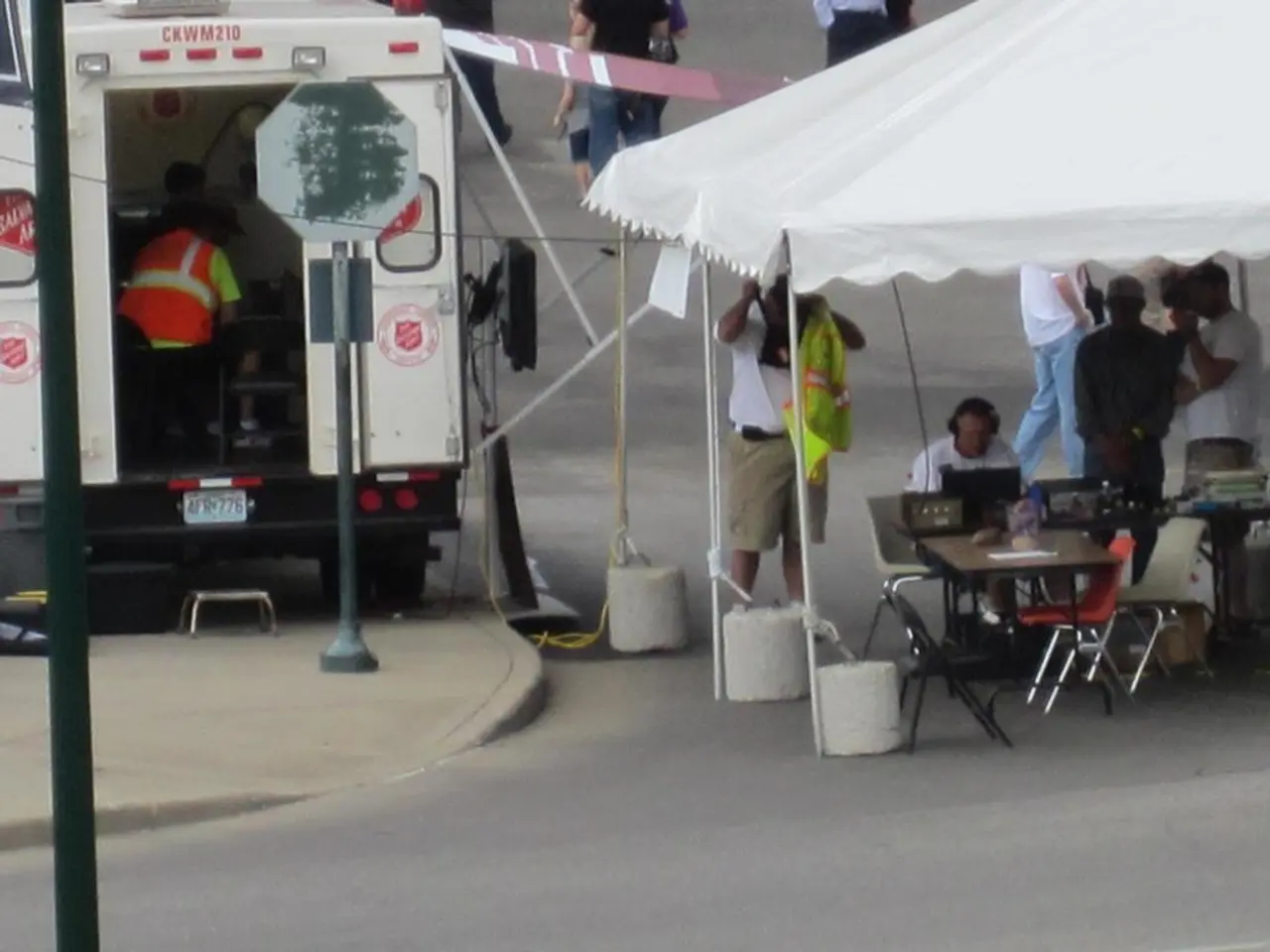Foreign leaders,counting 27 Foreign Ministers, express concern over the dire circumstance in Gaza, labelling it as unprecedented and unfathomable.
The humanitarian situation in Gaza remains dire, with a significant number of casualties, displacement, and destruction of civilian infrastructure. Since October 2023, at least 61,722 Palestinians have been killed, and over 154,000 injured, many of them women and children [1][2].
The crisis has led to critical shortages of essential supplies such as food, medicine, and shelter. Over 86% of Gaza remains under military-mandated displacement or restricted zones, and people live in inhumane conditions, often in damaged or overcrowded shelters [1].
The scale of destruction in Gaza City is extensive, with systematic bombing causing mass displacement and civilian deaths. Attacks on residential buildings and refugee shelters have resulted in numerous casualties, including children [2][5].
The international community, including the United Nations, UNRWA, OHCHR, and the European Union, among others, have been actively advocating for an end to the hostilities and unimpeded access to aid [1][2][3][4][5]. They have condemned the forced displacement and lethal attacks near humanitarian sites, particularly those operated by the Gaza Humanitarian Foundation [3].
The UN experts report over 850 deaths at distribution sites, calling the situation a "war crime" when aid is deliberately blocked. They also highlight widespread malnutrition deaths, including among children [3].
The Israeli government has been criticized for restricting the entry of aid supplies into Gaza. Israel has accused the United Nations of failing to deliver supplies in Gaza, and has alleged that the Islamic organization Hamas is exaggerating the malnutrition situation [1].
However, the Israeli government's plans to promote the influx of supplies have not provided specific details, and Gaza remains in a state of crisis [1]. The use of lethal force at distribution sites in Gaza is still a concern, as stated in the joint statement by the foreign ministers [1].
In response to the crisis, the foreign ministers of 26 countries, including Japan, the European Union, Britain, and France, released a joint statement on August 12, urging "urgent action" to halt and reverse starvation in Gaza [1]. They called for the immediate cessation of hostilities, unimpeded humanitarian access, and the protection of civilians [1].
The World Health Organization Director-General, Tedros Adhanom Ghebreyesus, described the situation in Gaza as manmade mass starvation [1]. The international community continues to express alarm over the humanitarian situation in Gaza, with the statement arguing that "lethal force must not be used at distribution sites" [1].
Efforts by international actors include UN agencies like UNRWA and OHCHR documenting conditions and calling for cessation of hostilities to enable aid access [1][2][3]. The Shelter Cluster is coordinating the resumption of shelter supplies as Israel recently allowed limited entry amid intensifying operations in Gaza City [4].
Joint statements from 27 international partners, including the US, Qatar, and Egypt, have urged Israel to unblock aid routes, protect humanitarian workers, authorize NGO operations, allow large-scale aid shipments, and support ceasefire efforts [5].
In summary, the crisis in Gaza involves catastrophic human suffering due to ongoing military operations and blockade restrictions, with international organizations and countries advocating urgently for ceasefire, humanitarian access, protection of civilians, and scaling up of aid deliveries to prevent famine and further death [1][2][3][4][5].
- Amidst the crisis in Gaza, concerns have risen regarding the adequate supply of necessary items like food, medicine, and shelter.
- The international community has been advocating for an end to the hostilities, stressing the need for unimpeded access to essential supplies such as those related to health-and-wellness, medical-conditions, and nutrition.
- The scale of destruction in Gaza City has also impacted the well-being of residents, increasing the risk of various neurological-disorders and other health complications.
- In a joint statement, foreign ministers from 26 countries, including Japan, Europe, and the United States, have called for greater focus on the fitness-and-exercise and health-and-wellness aspects, urging for immediate action to stop starvation.
- Meanwhile, the use of lethal force during distribution of aid has been highlighted as a war-and-conflicts-related issue, with concerns raised over its legality and effects on civilian populations.
- Furthermore, the debate over the Gaza crisis extends to political and justice matters, with various parties accusing one another of restricting aid and causing harm, while the international community continues to push for a peaceful solution to the ongoing crisis.




